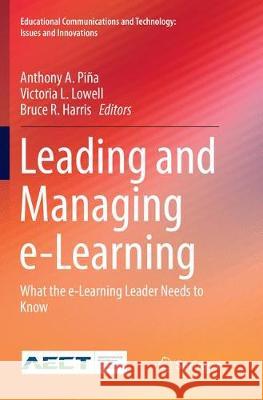Leading and Managing E-Learning: What the E-Learning Leader Needs to Know » książka
topmenu
Leading and Managing E-Learning: What the E-Learning Leader Needs to Know
ISBN-13: 9783319871615 / Angielski / Miękka / 2018 / 399 str.
Kategorie:
Kategorie BISAC:
Wydawca:
Springer
Seria wydawnicza:
Język:
Angielski
ISBN-13:
9783319871615
Rok wydania:
2018
Wydanie:
Softcover Repri
Ilość stron:
399
Oprawa:
Miękka
Wolumenów:
01











